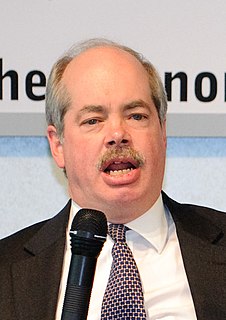A Quote by Vinod Khosla
Germany has a lot of solar power. In fact, in 2005, some 55 or 57 percent of worldwide installations were photovoltaics in Germany. That's 57 percent of all worldwide solar photovoltaics. Because of the high feed-in tariff, they have a way of allowing you to produce electricity and ship it into the grid at very high prices.
Related Quotes
Look at Germany where 20 percent of the labor force is in manufacturing compared to about 8 percent in the United States. Germany pays a lot more conscious attention at the level of the federal government to attracting and keeping manufacturers in Germany. So this is something that other countries do that the United States has not historically done.
The 1,230 gigawatts (GW) of renewable power generating capacity in place at the end of 2009 now constitutes just over 25 percent of total generating capacity worldwide. This is over three times nuclear generating capacity and roughly 38 percent of the capacity of fossil fuel-burning power plants worldwide.
Yes, sunny Nevada is an ideal state for solar power. As it gets cheaper, the state should use solar whenever it makes financial sense. But politicians shouldn't force you to buy it regardless of cost. It doesn't make sense to insert into the state constitution a requirement on energy use that locks Nevada into 50 percent wind and solar.
Our customer base isn't just people saying, 'I'm an environmentalist, I'm in my Birkenstocks, I went to Woodstock.' Solar is a bipartisan technology. Republicans like solar; conservatives like solar. Over 30% of our customers are veterans. There's something very American about being able to produce power on your own rooftop.

































